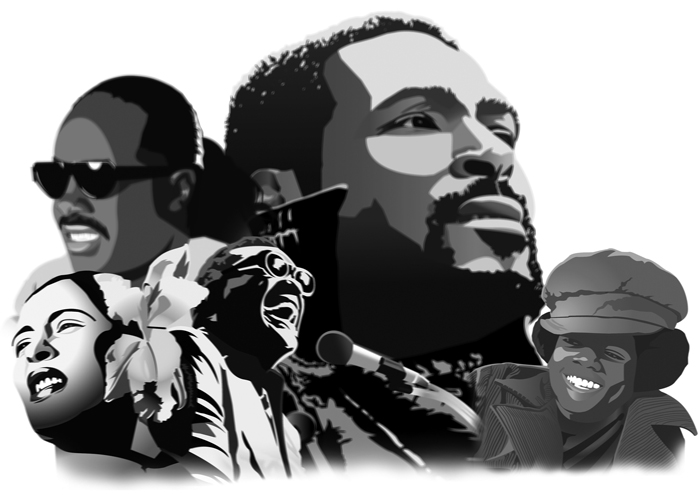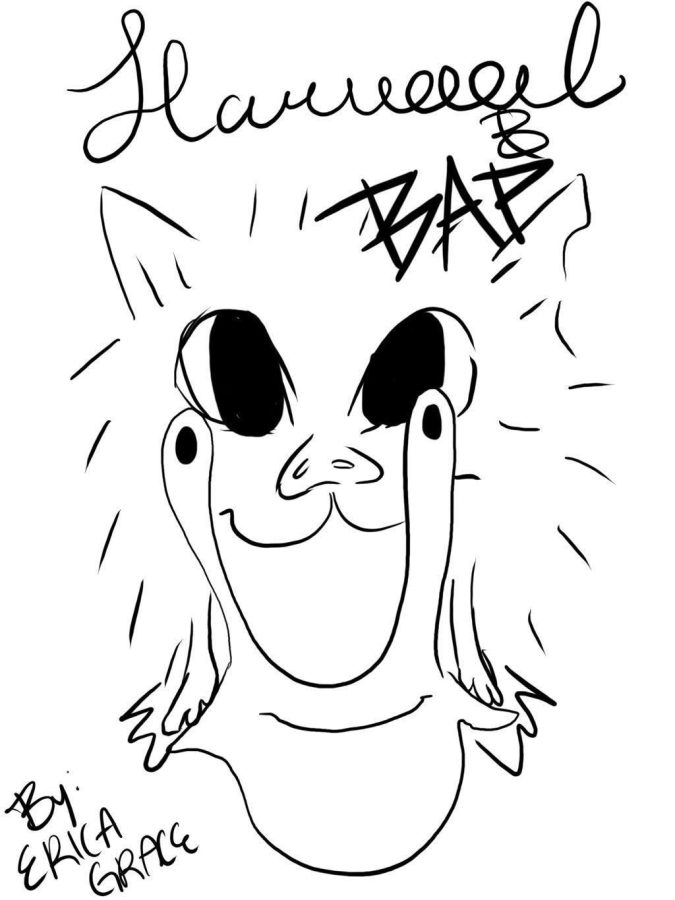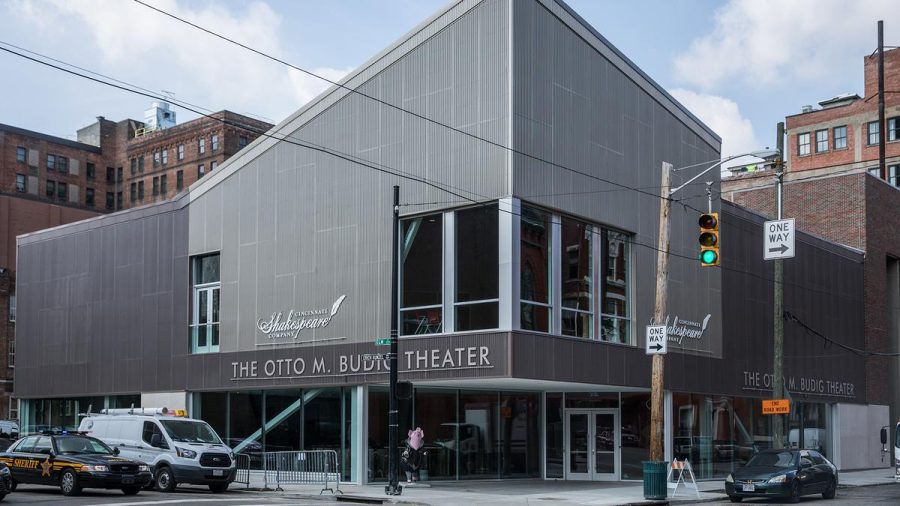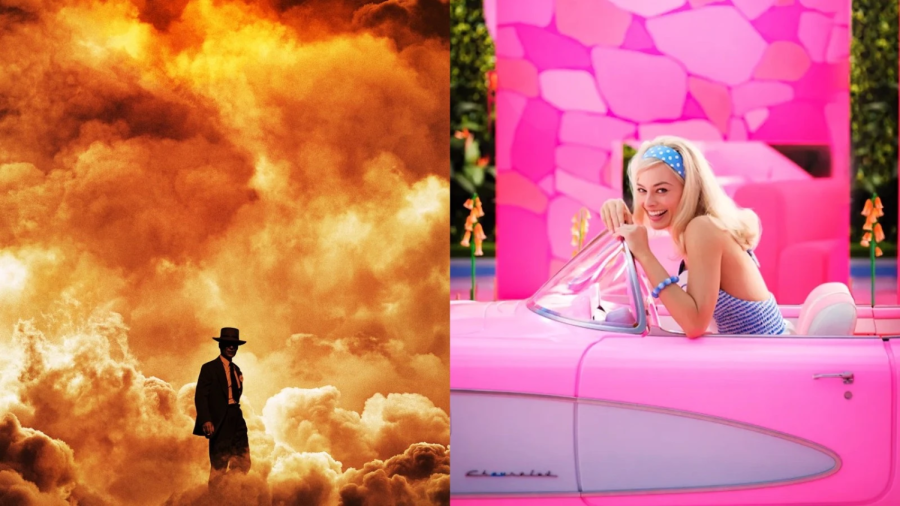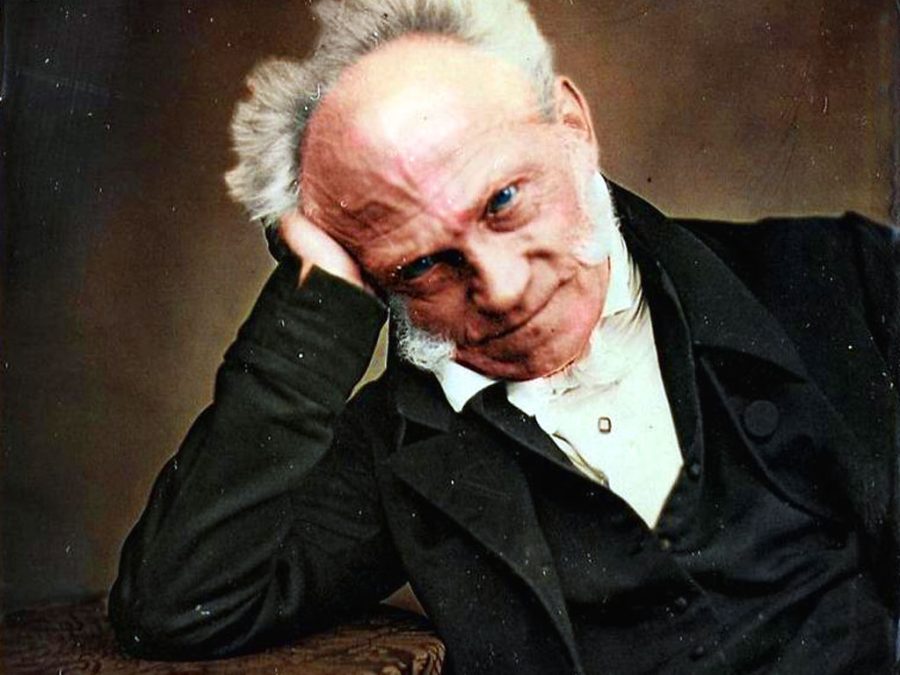By Jordann Sadler ’18, Perspectives Editor
Disclaimer: Beyoncé is not on this list.
There was a time where music was art, not a money machine. Whether the songs are about the black community, disrespect against women, rainy days, or they just have that groove that you can’t help but cry to, each song has a special place in my heart. I suggest that everyone at least take one minute to listen to these songs. They have been placed in chronological order from the date of their release. Please keep in mind that some may contain explicit language and suggestive content, but I have censored many lyrics. And yes, as many of you know, I am a Michael Jackson fan, but, no, this is not a list of twenty Michael Jackson songs.
1. Strange Fruit
Sung in 1939 by the jazz and blues singer Billie Holiday in the B-side Fine and Mellow, this Grammy Hall of Fame song grasps the haunting reality of the lynching of African Americans. “Strange Fruit” was originally a poem by Abel Meeropol, nevertheless, Billie Holiday, who was inducted into the Rock and Roll Hall of Fame, brought the song to life. The song was later sung many other artists including Nina Simone (who is also in this list.) I suggest listening to both—they are strong and powerful.
2. Mississippi Go—am
Sung in 1964 by Nina Simone, this Jazz song was featured in her album Nina Simone in Concert. Simone was known to be a very mean woman. She was bipolar but that didn’t stop her from being an amazing vocalist. She addresses racism in this fast-paced song and calls out southern states that upset her—including Mississippi.
3. Little Wing
This next song was not chosen because of its lyrics, but mainly because of its tear-jerking guitar solos and instrumentals. It was difficult to choose this over “The Wind Cries Mary.” Jimi Hendrix died at the age of 27, but his short career was a large one, including being inducted into the Rock and Roll Hall of Fame. The Woodstock Music and Art Fair is a classic example of Hendrix’s small but powerful performances. The classic rock 1967 song from “Hendrix in the West,” starts off with a serene guitar solo, which I’ve played on my iPod over and over and over. Although he talks about “Butterflies and zebras and moonbeams and fairy tales,” the free-love musician stood for the psychedelic, hippie life. The Rolling Stone Magazine ranked Hendrix as the greatest guitarist and the sixth greatest artist of all time.
4. Say It Loud—I’m Black and I’m Proud
Who knew that James Brown’s 1968 album A Soulful Christmas, would contain more than Christmas songs? In a time of depression and racism, this song said something that many wouldn’t dare to say: “I’m Black and I’m Proud.” The lyrics still stand today as there is still an ongoing fight between races. In the second live version, Brown sings this in front of a live, mainly white, female audience in 1969. His message spread throughout all communities.
5. What’s Going On
Marvin Gaye’s 1971 song from the classic soul album, What’s Going On, brings love into a hate-filled world. What’s Going On has won many awards, and the artist has won awards himself: The Grammy Hall of Fame, NAACP Image Award for Outstanding Album, and others. He was also inducted into the Rock and Roll Hall of Fame. With songs like “I Heard It Through The Grapevine,” “I Want You,” “Let’s Get it On,” and “Trouble Man,” Marvin Gaye was known for his love songs and his sanguine voice.
6. Living for the City
Stevie Wonder, the blind pianist. He was also inducted into the Rock and Roll Hall of Fame. This 1973 classical soul hit from the album Innervisions reflects the hardships of the poor in inner cities. With hits like “Signed, Sealed Delivered (I’m Yours),” “Supersitition,” “Isn’t She Lovely,” “My Cherie Amour,” and many more, the legend is remembered for his multi-talents in harmonica, keyboards, and drums.
7. Get Up Stand Up
The next musician is iconic for his Jamaican smooth reggae: Bob Marley, arguably one of the most powerful reggae artists of all time. He was also inducted into the Rock and Roll Hall of Fame. Bob Marley and the Wailers have had several hits such as “I Shot the Sheriff,” “Jammin’,” and “Turn Your Lights Down Low.” He sung about Africa, slavery, and injustice everywhere.
8. Redemption Song
We transition into 1980 with this song from Bob Marley’s album Uprising. This slow-tempo reggae song brings out another meaning of the word “freedom.” In “Redemption Song,” Marley and the Wailers address a kind a slavery that cannot be shackled: mental slavery.
9. The Message
From Grandmaster Flash and the Furious Five, we have the first taste of early 80’s hip-hip and rap. From the 1982 album The Message, Grandmaster Flash raps about living in ‘the ghetto’. Grandmaster Flash is known to be one of the pioneers of early rap and was inducted into the Rock and Roll Hall of Fame.
With the start of rap and as I get deeper in this list, I want to address the bad reputation that rap and hip-hop have. Today, rap has changed considerably, but if you listen to rap of the 80’s and 90’s, you will find quality music that is not all about drugs, girls, and money. Many rap artists addressed social issues—some which still stand today. Tu Pac Shakur even had a feministic view of the world, as I will show later in the list. Yes, they may use profanity and suggestive language, but that is how they expressed themselves. That is how they are going to reach their people that live in the ‘hood’ and the ‘ghetto’. I will censor the lyrics that I use, but it is better to listen to rap in its true medium and not through a censor bar. It is better to consider what these rappers and hip-hop artists have been through, most of their problems being based on their skin color. To censor quality rap is like censoring Michelangelo’s “David.” Rap is an art. Rap is another medium, another genre, used to express ourselves.
10. Thriller
Michael Jackson: The King of Pop. He has inspired so many artists today with his dance moves and superb vocal abilities, including Beyoncé, Justin Bieber, Justin Timberlake, Lady Gage, and many other top artists. His 1982 album Thriller included this hit song, which advocated for the black community in terms of African-American appearances on T.V channels such as MTV. Michael Jackson has won many awards, including 26 America Music Awards; 40 Billboard Music Awards; 6 Brit Awards; 1 MOBO (Music of Black Origin) Award; 13 Grammy Awards; 2 Danish Music Awards; 39 Guinness World Records (some of which haven’t been broken); 18 MTV VMA Awards; 12 Soul Train Awards; 16 World Music Awards; and countless others. He was also inducted into the Rock and Roll Hall of Fame. Thriller has won a Grammy Award for Album of the Year; Grammy Award for Best Engineered Album; was inducted into the Grammy Hall of Fame; a Brit Award for Best Selling Album; American Music Award for Soul/R&B; American Music Award for Favorite Pop/Rock song; Special Billboard Awards; and a long list of others.
11. Buffalo Soldier
What’s so special about Bob Marley and his music is that I could take almost any song from any of his albums and put them on this list; every song, every lyric had a message. From the 1983 album, Confrontation, he speaks about slavery and war in “Buffalo Solider.” Bob Marley and the Wailers referred to their African roots in many of their songs, reminding African-Americans not to forget where they came from.
12. Man in the Mirror
With “Black or White,” “We are the World,” “Heal the World,” “Earth Song,” and $500 million donated to charity, Michael Jackson had a kind heart. He was a strong advocate for human rights, children’s rights, and environmental awareness. From the 1987 album Bad, “Man in the Mirror” has a very enlightening music video, showing clips of children in Africa, clips of Martin Luther King Jr., and other meaningful messages. In the beginning of the song, he starts off with: “I’m gonna make a change, for once in my life.”
13. F—The Police
Before you laugh or stop reading this list—hear me out! This west-coast hip-hop, rap song from N.W. A’s 1988 album Straight Outta Compton (N.W.A stands for N—with Attitudes.) The rap group consisted of Dr. Dre, Eazy-E, and Ice Cube. The Arabian Prince shortly left the group and DJ Yella and MC Ren joined later. You may have heard of the recent movie “Straight Outta Compton” that came out in 2015. “F—The Police” is such a meaningful song because the streets were filled with police brutality. This correlates to today’s culture with the rise of brutality against people of color. This song is not to bash all police men, rather the corrupt forces. It was nearly banned when it came out. I remember hearing stories of my father and his friends driving down the street when they were young; they were pulled over for having this playing in their car. They were almost arrested, and were told never to play the song especially in public.
14. Don’t Believe the Hype
Public Enemy: Chuck D, Flavor Flav, Professor Griff, Khari Wynn, DJ Lord, and the SIW group. The east coast hip-hop group released this song in 1988 in their album It Takes a Nation of Millions to Hold Us Back. Public Enemy is known to be a strong advocate for black rights. They often mention injustice, hypocrisy, and other controversial topics on African-Americans. They even doubted Elvis Presley’s fame, claiming that he was racist. With songs such as “Fight the Power,” “Bring the Noise,” “Rebel Without a Pause,” “Public Enemy No.1,” and many more, they reached out to their communities bringing awareness to discrimination. Like N.W.A, on their album Fear of a Black Planet (1990) their hit song, “911 Is a Joke” further comments on the police brutality that went on during the 80’s and is still prominent today.
15. Treat ‘Em Right
From Hip-hop/rap artist Chubb Rock, on the 1991 album The One, the song “Treat ‘Em Right” reaches out to the youth. The up-tempo, creative beat followed by a message creates a song that is both catchy and memorable. The song also mentions young Yusef Hawkins, a 16-year-old African-American boy who was shot to death in 1989. Hawkins and his three friends where attacked by a crowd of 10-30 white youths. Many people in the mob had baseball bats, while one held a handgun and shot Hawkins twice in the chest.
16. U.N.I.T.Y
Queen Latifah: many do not know that she was a rapper before she was an actress. She strongly advocated for black rights and often referred to her African roots. She had hits such as “Just Another Day,” “Ladies First,” and “Latifah’s Had It Up 2 Here.” She was also a feminist as you will find out in “U.N.I.T.Y” from the 1993 album Black Reign. “U.N.I.T.Y” has also won a Grammy award for best rap solo performance. The lyrics I choose were hard to pick because every line has a meaning.
17. Keep Ya Head Up
Tu Pac Shakur has had a major impact on the black community. His studio albums 2Pacalypse Now, Strictly 4 My N.I.—.A.Z., Me Against the World, and All Eyez on Me are amongst some of the best rap albums. Songs such as “Only God Can Judge Me,” “California Love,” “Brenda’s Got a Baby,” “I Ain’t Mad at Cha,” “All Eyez on Me,” and many more, are considered the peak of rap music. He was a strong advocate for black rights, addressing police brutality, the hardships of being poor, and the disenfranchisement of African Americans. In 1996, Lesane Parish Crooks, (Tu Pac), was fatally shot in a drive-by shooting. Today, he is a glorified legend. Being one of the most influential rappers, he has won many awards and honors. In April 7, 2017, he will be inducted into the Rock and Roll Hall of Fame. In the 1993 album Strictly 4 My N.I.—.A.Z., the song “Keep Ya Head Up” is for African-American women who is often ignored, rejected, and disrespected in their own communities.
18. Dear Mama
A Tu Pac Shakur song from the 1995 album Me Against the World discusses the underappreciated status of mothers, especially African-American mothers. With Tu Pac, and many other great rappers, their rap reads like poetry. Many do not understand the meaning, including the groove and rhythm behind it. To those who do not understand rap, Tu Pac would be a great place to start.
19. Doo Wop (That Thing)
Lauryn Hill, most commonly known as being part of The Fugees, sings the R&B/Soul song “Doo Wop (That Thing).” From her 1998 debut solo album The Miseducation of Lauryn Hill, she sings about Africa, black rights, feminism, love, and peace of mind. Songs such as “Ex-Factor,” “Lost Ones,” “Forgive Them Father,” and “To Zion” are accompanied by lovely tunes and Hill’s harmonious voice. In “Doo Wop (That Thing)” she asks, “How are gonna win, when you ain’t right within?” and addresses inner battles and disputes between the sexes.
20. The Healer
The last song on the list from the R&B/Soul, Neo-soul artist Erykah Badu. “The Healer” from the 2008 album New Amerykah Part One (4th World War) exemplifies Badu’s smooth rhythm. Songs like “On & On,” “Bag Lady,” “Window Seat,” “Love of My Life,” “Next lifetime,” “Tyrone,” and many other songs that aren’t listed brings calm, yet always have meaning behind the sweet sounds. Badu, like many artists, also referenced Africa and spoke against racism, being a strong advocate for black-rights. “The Healer” shows that hip-hop is the ultimate healer. Badu pays tribute to Dewitt Yancey, J Dilla or Jay Dee. He was a rapper and record producer who worked with A Tribe Called Quest, Busta Rhymes, Common, and Erykah Badu herself. Dilla died in 2006 of a blood disease. Badu argues that hip-hop makes walls come tumbling down.
Yes, this is a list of 20 black songs, but there are more, many more that capture the true essence of music. This is just a small list compared to the music that the black community has contributed to music history. Part 2 will come later!



